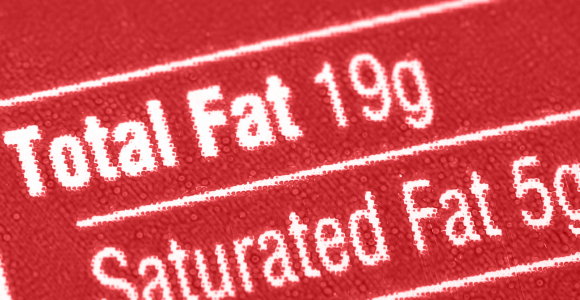Fat is fat, right? Well, not exactly--the truth is that not all fats are created equal. Far from it, certain fats lead to nasty diseases that can potentially shorten your life span, while other fats may help keep you away from the doctor's office. Trans fats may be the worst of the worst, and the Centers for Disease Control and Prevention recommends cutting them out of your diet completely.
What Are Trans Fats?
Natural trans fats are found in small amounts in animal products like beef and cheese, but most trans fats in the American diet are synthetic. Food manufacturers make trans fats by processing vegetable oils with hydrogen, resulting in a product called partially hydrogenated vegetable oil. These partially hydrogenated oils are solid at room temperature, whereas natural plant oils are typically liquid. Food makers use them because they're cheap to produce and easy to work with, and they extend the shelf life of foods.
But while trans fats make your food last longer, they also jeopardize your health. The American Heart Association warns that these substances elevate levels of "bad" LDL cholesterol in the blood while lowering "good" HDL cholesterol levels, increasing your risk of suffering a heart attack or stroke. What's more, trans fats may raise your risk of developing Type 2 diabetes.
Trans Fats in Food
Trans fats are included in a wide variety of processed and packaged foods; some of the worst offenders are baked goods and pastries such as donuts, pie crust, pizza dough and cookies. French fries also often contain trans fats, as do stick margarines and vegetable shortenings.
Avoiding natural trans fats is as simple as removing fatty meat and dairy from your diet; however, steering clear of the synthetic variety takes a bit more research. While trans-fat content is included on nutrition labels, products with less than 0.5 grams of the stuff are allowed to call their products "trans-fat free." Therefore, the only way to know for sure that a product has no trans fat is to check the ingredients list for partially hydrogenated oils.
Healthy Fat Intake
Despite the potential evils, you do need some fat in your diet to maintain good health. The most beneficial fats come from plant sources such as nuts, avocados, olive oil and canola oil. Plant fats are mainly polyunsaturated and monounsaturated, and these types of fats actually help lower cholesterol levels and reduce your diabetes risk. Omega-3 fatty acids, which are polyunsaturated, are particularly lauded for their heart-healthy properties. Get omega-3s from fatty coldwater fish such as salmon, or from walnuts and flaxseeds.
Even with healthy fats, you can certainly have too much of a good thing. Fat contains more than double the calories of carbs or protein, and eating too many calories leads to weight gain. For optimal health, aim to get 20 to 35 percent of your calories from fat each day. Saturated fat, found mainly in animal products, should make up no more than 10 percent of your daily caloric intake--and no more than one percent of your daily calories should come from trans fats. 
Nina Kate is a certified fitness nutrition specialist through the National Academy of Sports Medicine (NASM). She also studied journalism at the University of California, Los Angeles (UCLA), and has contributed to numerous major publications as a freelance writer. Nina thrives on sharing nutrition and fitness knowledge to help readers lead healthy, active lives. Visit her wellness blog at BodyFlourish.com.



